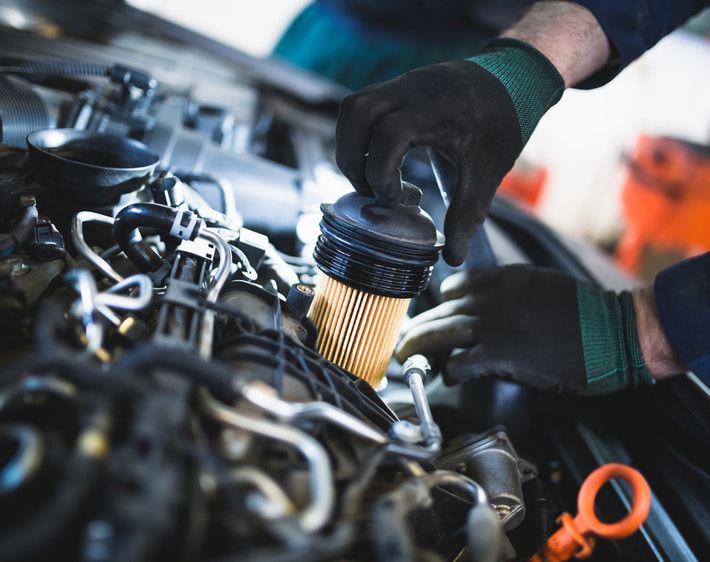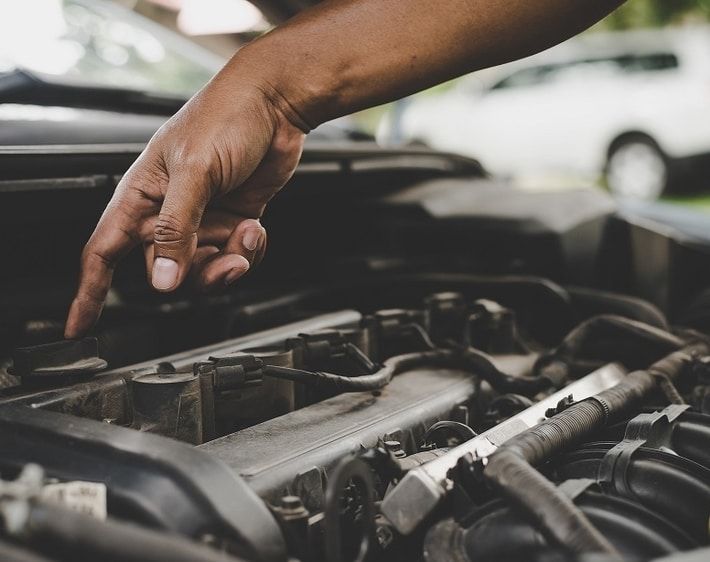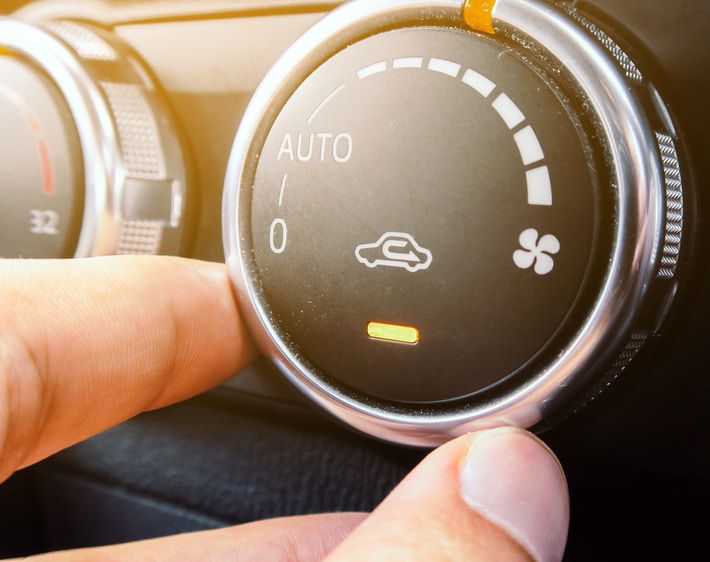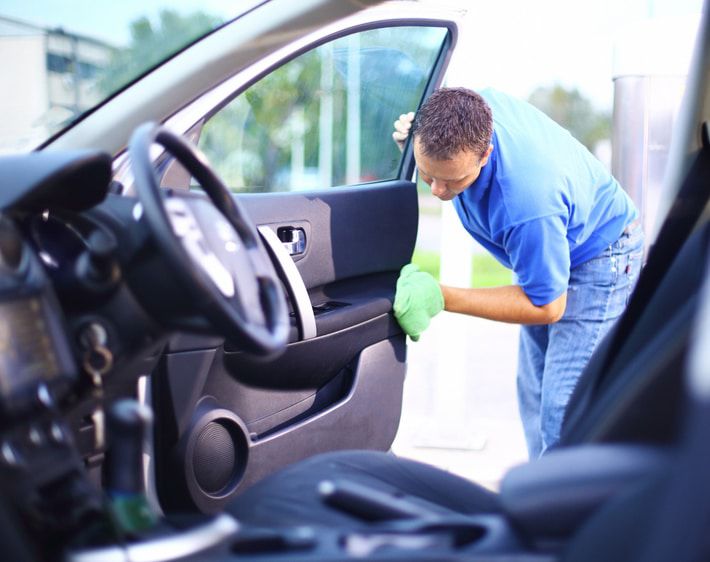Want your car to run like a clean, mean driving machine? The intricate mechanics of your vehicle rely on filters to help prevent contamination from impacting performance. Each filter — oil, transmission, fuel, and air — has a different “role” contributing to the same goal — to keep you and your car driving smoothly. Learn what each type of vehicle filter does and how to tell when one of them isn’t working.
How many types of filters does a car have?
There are generally four types of car filters — oil, transmission, fuel, and air. However, some drivers find this confusing because there are two different air filters in most vehicles. Below, we’ll explain more about how each type of filter works (and why you likely have two rather than one air filter).
All About Your Vehicle’s Oil Filter
Engine oil lubricates the moving components inside the engine, helping regulate engine operating temperatures. However, with age, junk like moisture, dust, metal particles, and corrosion can cause the engine oil itself to become dirty! The oil filter helps trap contaminants as they cycle through the engine.
Like most of your car’s components, this filter is subject to regular maintenance, which is why all manufacturers suggest changing it at the specific intervals. Some symptoms of a failing oil filter include an illuminated check engine light (or engine oil dash light), decreased engine oil pressure, or knocking sounds coming from the engine due to a lack of oil pressure.
It’s always best to get timely oil changes and filter replacements using your manufacturer-recommended maintenance schedule. However, if you notice you are due for an oil change, bring your car into your local Tires Plus.
All About Your Vehicle’s Transmission Filter
Transmission filters are one of the lesser-known filters of the bunch. However, that doesn’t make them any less important. As the name suggests, this filter acts as a specialized strainer to keep your transmission fluid clean.
Transmission fluid helps your car shift smoothly by lubricating the parts in your transmission system, exerting hydraulic pressure to help facilitate gear shifts, and keeping the system from overheating and the gears from grinding. Over time, this fluid can become contaminated, and the transmission filter’s job is to curb this contamination!
However, the transmission filter can become clogged, too — restricting the fluid’s flow and leading to issues with your car’s performance. Some signs of a clogged transmission filter include rattling or whining noises, rough gear-shifting.
Typically, only automatic transmission vehicles are equipped with transmission filters, but that doesn’t mean you should ignore these symptoms if you drive a manual transmission, CVT, or other type of transmission. Many of the signs of a faulty transmission filter mimic the symptoms of other transmission problems, all of which can eventually lead to transmission failure — and expensive repairs!
You can get ahead of transmission problems by getting the transmission fluid exchanged and filter replaced according to the service intervals recommended by your manufacturer. Additionally, if issues do arise, you can visit Tires Plus for fairly-priced transmission repairs.
All About Your Vehicle’s Fuel Filter
The majority of cars on the road today run on internal combustion engines. Such motors rely on fuel, air, and a controlled spark to turn energy into movement through a system of complex mechanical processes.
With time, your fuel system may become contaminated due to moisture, rust, and by-products of fuel degradation. Your vehicle’s fuel filter is supposed to prevent such contamination from reaching and damaging the fuel injector and other high-precision parts in your fuel injection system.
Like your car’s other filters, the fuel filter itself can become clogged as well, which is why many vehicle manufacturers recommend regular fuel filter replacements. Additionally, depending on your driving habits and the road conditions where you live, you may need to get your fuel filter replaced sooner.
Generally, some signs that your vehicle’s fuel filter is clogged include difficulty starting your car, engine stalling, reduced gas mileage, sputtering sounds, and decreased engine power. Problems with the fuel filter can trickle down to other parts in the system — leading to more complicated repairs. If you suspect you’re in need of a replacement, visit your local Tires Plus for an expert inspection and tune-up.
All About Your Car’s Air Filters
Cabin Air Filter
Most modern cars have two air filters — the cabin air filter and the engine air filter, which filter the air coming into your vehicle’s cabin and engine, respectively. The cabin filter helps maintain the air quality inside your car by capturing pollutants like dust and allergens before they reach your nostrils!
Aside from possibly making your allergies worse, a dirty or clogged cabin filter can lead to a host of car A/C problems like reduced airflow or foul, musty odors coming from your car’s vents. Additionally, if you’re driving in the winter, a clogged cabin filter may make it harder to de-fog your windows. If you notice any of these issues or are due for a cabin air filter replacement, visit your local technicians for help freshening up your cabin filter!
Engine Air Filter
Your engine air filter helps keep dust, dirt, and other pollutants out of the engine rather than the passenger compartment. Since internal combustion engines require air to function, a clean engine air filter is essential to your car’s performance and efficiency. You should get your engine air filter checked and replaced as often as your manufacturer recommends, or possibly sooner.
Signs of a “bad” or dirty engine air filter include decreased fuel economy and engine misfires. Additionally, a dirty or clogged air filter may damage other parts of your engine, such as the spark plugs. If those signs of a bad air filter aren’t enough to make you want to change yours, consider this — according to a study published by the U.S. Department of Energy, vehicles running on clean engine air filters may experience a 6-11% improvement in acceleration times. Vroom!
Expert Maintenance and Repairs, Unfiltered
Are your vehicle filters in need of replacement? Head to a Tires Plus in your area to have our expert technicians and car care experts take a thorough look at your vehicle filters and replace any as necessary.



